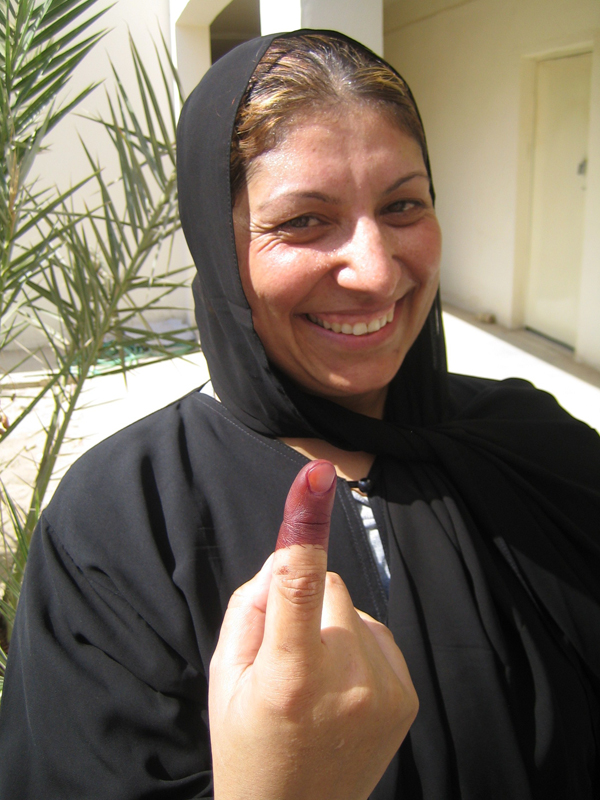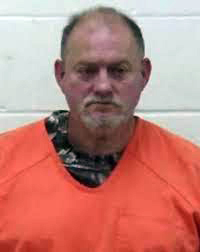
BAGHDAD, Iraq (BP)–Early reports indicate a majority of Iraqis approved the proposed constitution Oct. 15, formalizing the nation as a parliamentary democracy during what President Bush has called “a momentous time in the history of the Middle East.”
While the millions of paper ballots are being counted, it appears that Iraq’s Shiites and Kurds, who together represent about 80 percent of the country’s population, voted yes in the referendum while the Sunnis, representing 20 percent of Iraq’s people, did not accomplish their goal of defeating the constitution, according to The Washington Post.
In order to be defeated, the document, drafted by a constitutional committee this summer, required rejection by two-thirds of voters in at least three of Iraq’s 18 provinces. Results are expected to be announced Oct. 18.
Bush, speaking to reporters on the south grounds of the White House Oct. 16, said he was proud of Iraqis simply for engaging in the political process of casting votes.
“On behalf of the American people, I’d like to congratulate the people of Iraq for the successful completion of a vote on their draft constitution,” the president said. “By all indications, the turnout was greater than the turnout from the last January election, which is good news. By all indications, the Sunnis participated in greater numbers in this election than last time. And that’s good news. After all, the purpose of a democracy is to make sure everybody participates in the process.”
The president also expressed gratefulness that the level of violence associated with the referendum was considerably less than the level surrounding the elections last January, which he said is a tribute to Iraqi forces who trained hard for the occasion and to the coalition forces who continue to guard the advance of freedom in the Middle East.
“This is a very positive day for the Iraqis and, as well, for world peace,” Bush said. “Democracies are peaceful countries. The vote today in Iraq stands in stark contrast to the attitudes and philosophy and strategy of al Qaeda and its terrorist friends and killers.
“We believe, and the Iraqis believe, the best way forward is through the democratic process. Al Qaeda wants to use their violent ways to stop the march of democracy because democracy is the exact opposite of what they believe is right.”
During an appearance on NBC’s “Meet the Press” Oct. 16, Secretary of State Condoleezza Rice said perhaps as many as a million more Iraqis participated in the referendum than the January elections, which means that “the base of politics has expanded in Iraq.”
“I think we have to wait to see what the results of the referendum will be, but the fact of the matter is that they had a democratic process,” she said. “They were told that they had a chance to vote yes or no, and they went to the polls in large numbers.”
Rice said whether the constitution is approved or rejected does not diminish the fact that democracy has been served because citizens made their opinions known and they will hold additional elections in December “one way or another.”
If the constitution is passed, Iraqis will return to the polls Dec. 15 to choose a full-term parliament. If the constitution fails, the parliament elected on that date will be temporary and will be assigned the task of drafting a new constitution.
“By casting their ballots, the Iraqi people deal a severe blow to the terrorists and send a clear message to the world: Iraqis will decide the future of their country through peaceful elections, not violent insurgency,” Bush said in his weekly radio address Oct. 15. “And by their courageous example, they’re charting a new course for the entire Middle East.” He added that “with each step the Iraqi people take, al Qaeda’s vision for the region becomes more remote.”
The constitution declares that all Iraqis are equal before the law without regard to gender, ethnicity or religion. It declares Islam the official religion of Iraq and says no law may be passed which contradicts the principles of the religion or the principles of democracy. It also guarantees “full religious rights for all individuals and the freedom of creed and religious practices.”
Many Sunni Arabs opposed the constitution because of its provision of a federal state in which provinces have significant powers rather than a strong central government akin to Saddam Hussein’s reign. Sunnis fear provinces dominated by Shiites or Kurds could sway the nation in the wrong direction. High Sunni turnout for the referendum stood in measurable contrast to their tactic of boycotting the January elections.
“The important thing is that this referendum was a turning point, where people moved toward using the political process,” Mahmoud Othman, an independent Kurdish member of parliament who helped draft the constitution, told The Post. Sunnis, he said, “will participate in the next elections because they see that through the political process they can gain a lot, which we hope will turn them away from the insurgency and isolate the terrorists.”
On Meet the Press, Rice answered a question about a poll indicating 51 percent of Americans believe removing Hussein from power was not worth it.
“The fact of the matter is that when we were attacked on Sept. 11 we had a choice to make: We could decide that the proximate cause was al Qaeda and the people who flew those planes into buildings and therefore we would go after al Qaeda and perhaps after the Taliban, and then our work would be done and we would try to defend ourselves,” she said.
“Or we could take a bolder approach, which was to say that we had to go after the root causes of the kind of terrorism that was produced there, and that meant a different kind of Middle East. And there is no one who could have imagined a different kind of Middle East with Saddam Hussein still in power.”
Bush also emphasized the need to press on through long and costly hardships in order to alter the course of history in the Middle East so that generations of people everywhere can live in freedom.
“In Iraq, we have brought down a murderous regime. We have stood by the Iraqi people through two elections, and we will stand by them until they have established a free nation that can govern itself, sustain itself and defend itself,” he said. “When we do, Iraq will be an ally in the war on terror and a partner for peace and moderation in the Muslim world. And because America stood firm in this important fight, our children and grandchildren will be safer and more secure.”
–30–
















